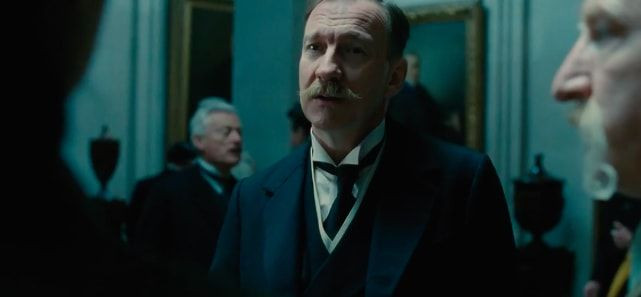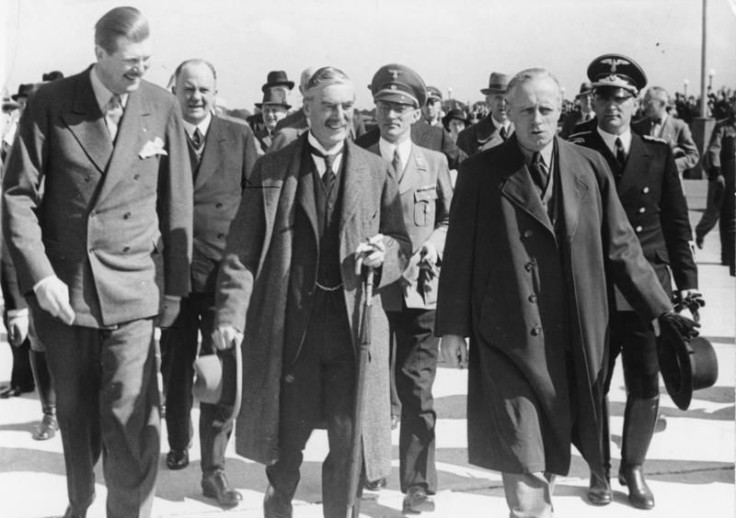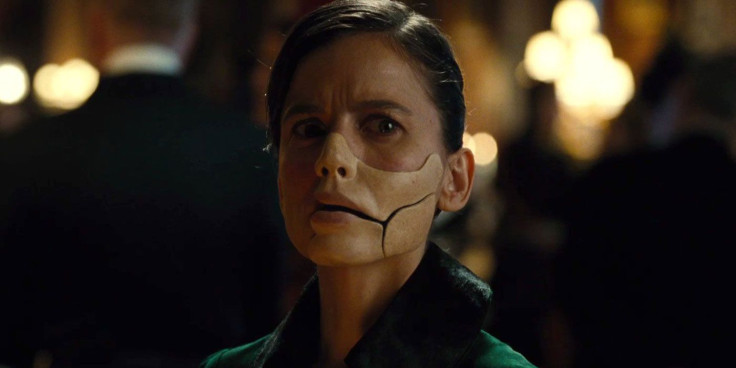While Wonder Woman was widely liked (here’s our positive review), there’s widespread agreement that it had a disappointing end. Beware of spoilers, we’ll be talking about it head-on.
Diana, princess of Themyscira, has one mission in the world of men (currently suffering through the spasms of the first World War): kill Ares and end war forever. She quickly becomes convinced the German General Ludendorff (Danny Huston) is Ares in disguise, sabotaging the imminent armistice with chemical weapons provided by Dr. “Poison” Maru (a spectacular Elena Anaya). But if you’ve ever seen a movie before, you have probably already guessed Wonder Woman has been deceived. And there’s really only one other character who could fit the part: Sir Patrick Morgan (David Thewlis), a British Imperial War Cabinet member who helps Diana and Steve Trevor get to the front lines of the war to confront Ludendorff.
And indeed, at the very end, after Wonder Woman has killed Ludendorff, Sir Patrick reveals himself as Ares. He is not the cause of war, Ares explains to Wonder Woman, he’s just heightening the tensions between humans — the darkness is within them, not him. And wouldn’t it be better if Diana and him, a god and goddess, wiped away this human stain and returned nature to the paradisal time before humanity's creation, when only perfect beings populated the green Earth? Diana, disappointed to discover that killing Ares won’t mean an end to human evil, nevertheless chooses to fight back, embracing humanity in its imperfections.
“It’s about what you believe,” Wonder Woman says at the end of the movie, having learned many lessons in the decades since World War I, “And I believe in love. Only love will truly save the world.” It’s not a bad theme for a superhero movie (certainly better than the cancerous cynicism of Batman v Superman), but there was a great deal about the final act execution that left viewers wanting. Some called it rushed. I’d call it a steaming pile of CGI goo, which sheds the relatively imaginative imagery of a dapper English nerd throwing around missiles like a malevolent Mary Poppins for the typical armored, faceless video game boss (the flashback cutaway to a computer-buffed, shirtless Thewlis is especially laughable).
But there’s another, more sublimated problem with how Wonder Woman reveals its Ares. The true identity of Ares traffics in a right-wing parable that portrays diplomatic efforts as universally naive. It’s a mythology that only has one answer to every world problem: more violence. And did we really need to kick poor Neville Chamberlain’s corpse yet again?
Neville Chamberlain has had a rough go of it since his death in 1940. As Prime Minister of the United Kingdom from 1937 to 1940, his tenure today is most associated with the widespread perception that he failed to anticipate or mitigate the growing threat of Adolf Hitler. His domestic reforms — including better factory working conditions and paid holiday leave — have all been overshadowed by a single word: appeasement.
In 1938 Neville Chamberlain, along with France and Italy, signed the Munich Agreement, essentially consenting to the German invasion and occupation of strategically valuable portions of Czechoslovakia. Chamberlain’s description of the agreement as providing “peace for our time” continues to be a cautionary tale today. Though contemporary analysts, Winston Churchill and popular sentiment condemned Chamberlain’s decision as naive and contributing to the unchecked growth of the Nazi threat in Europe, subsequent historical research argues that Chamberlain never had much of a choice — the UK was simply not prepared for a war in 1938.
But really, it doesn’t matter whether or not Chamberlain made the right decision, but how the Munich Agreement and the concept of appeasement has become a cautionary parable trotted out for all sorts of foreign policy positions, typically with a terrible overriding message: peace is war.
Chamberlain was used to argue against any diplomatic efforts during the Bosnian War. “Appeasement” became a Fox News bludgeon as President Barack Obama negotiated the Iran Deal. Having taken on the universal patina of fable, Chamberlain has been used to argue against Palestinian statehood and even the Paris Agreement (because heading off global warming devastation is just like appeasing Hitler). William Kristol, the conservative “intellectual” who brought us Sarah Palin and extra-large forehead wipes, has analogized Chamberlain’s appeasement to 61 different world events. It’s the lesson that applies to everything: diplomacy is for pussies, real change happens thanks to bombing campaigns.
Sir Patrick isn’t Neville Chamberlain, he’s a fictional character. As far as I can find, director Patty Jenkins and screenwriter Allan Heinberg haven’t mentioned modelling Sir Patrick after Neville Chamberlain. But they’re both Americans and most of us have only ever heard of six or seven British dudes. What are the odds that the British politician working toward a peace treaty, even as more heroic figures tell them it won’t end the war, isn’t based on Neville Chamberlain? If you disagree, go ahead and discount this entire argument, but this doesn’t seem like a huge stretch to me:


None of this is to say that Wonder Woman wields the Neville Chamberlain cautionary tale to any explicit political end. Rather, it’s evidence of the cultural endurance of the mostly erroneous lesson we are meant to have learned from his “appeasement”: that those who try for peace are more likely to enable evil — war is purgative, diplomacy is duplicitous and often cover for cowardice. For a movie that’s otherwise about the need for humanity to fight for the best side of itself, it’s a bummer that the reveal of Ares traffics in the opposite, suggesting instead that it’s the people who pursue the better angels of our nature that are more likely to unleash demons.


















